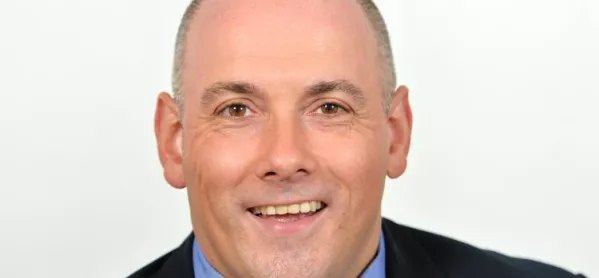‘Cap Ofsted ratings’ for schools not taking pupils in care

Schools that refuse to admit looked-after children should face a hit to their Ofsted ratings, according to a report from an influential committee of MPs.
The cross-party Commons Education Select Committee’s new report - Educational poverty: how children in residential care have been let down and what to do about it - warns that some children in care are receiving an ”unacceptable” education.
It says that just 7.2 per cent of looked-after children achieved the grade 5 “good pass” threshold in English and maths GCSEs, compared with 40.1 percent of non-looked-after children.
- Background: Looked-after pupils’ support ‘frequently’ broke down
- WATCH: ‘Do not underestimate care-experienced children’
- Advice: What schools should know about children in care
The report claims that there is a “culture of impunity” enabling schools to turn away children in care, despite them being prioritised in law for school places.
It states that research by Ofsted identified that, of children in residential care attending mainstream state schools, 76 per cent attended “good” or ’“outstanding” schools, compared with 84 per cent of children nationally.
The committee has recommended that Ofsted must cap ratings for schools if they are found to block admissions for looked-after children.
Call for better support for children in care
Statutory guidance states that looked-after children must be given the “highest priority” for a school place in the event of places being oversubscribed, and a local authority has the power to direct a maintained school to admit a looked-after child, even if the school is full.
In the case of academies, the local authority can ask the academy to admit a looked-after child, and if it refuses, the local authority can request that the secretary of state intervenes.
And the report states: “There is no published national data on how widespread these refusals are, but a small-scale poll of 53 children’s homes carried out by the Independent Children’s Homes Association found that 58 per cent did not believe the [guidance] was being honoured.”
It adds: “National Association of Virtual School Heads chair Patrick Ward informed us that cases where the secretary of state needs to be appealed to are ‘very prevalent’.”
And it states: “Schools must be held accountable for refusing to admit looked-after children - the lever for this accountability should be the impact on the school’s Ofsted judgement.”
Speaking about the report, Robert Halfon (pictured), the committee’s chairman, said children in care were ”being let down by the system which should be there to support them”.
“The least the system can do is its legal duty to make sure that looked-after children get prioritised for the ‘good’ and ‘outstanding’ schools that can cater to their needs, which are often more complex than children living with their parents,” he said.
“But many are abdicating even that responsibility, using children’s own circumstances against them with impunity.
“Ofsted ratings should tumble if councils and schools don’t give these children the equal opportunities they deserve. Similarly, far more power should be given to virtual school heads, whose specific responsibility is to get looked-after children the best education possible.”
Dame Rachel de Souza, children’s commissioner for England, said the report backed up many of the concerns her office had raised over the past year.
These include that “care is patchy and inconsistent, the importance of creating an education system where the child sits at the centre of decision-making and that authorities need to use data, statutory powers and funding to make maximum impact and deliver excellent outcomes, for all children”.
Other recommendations in the report include the Department for Education extending Pupil Premium Plus funding beyond age 16 to “ensure looked-after pupils receive the support they deserve to succeed throughout their education”.
A Department for Education spokesperson said: “Our Schools White Paper sets the ambition to raise pupils’ attainment in English and maths by the end of primary school and GCSEs. It acts as a roadmap for levelling up education for every pupil in England, including those in care or who have a social worker.
“These children benefit from targeted additional funding and the support of a dedicated staff member in every local area to identify and champion their needs.
“We are also strengthening links between social care and education to keep vulnerable pupils engaged in school, ahead of widescale reform to the care system through our response to the independent review of children’s social care.”
You need a Tes subscription to read this article
Subscribe now to read this article and get other subscriber-only content:
- Unlimited access to all Tes magazine content
- Exclusive subscriber-only stories
- Award-winning email newsletters
Already a subscriber? Log in
You need a subscription to read this article
Subscribe now to read this article and get other subscriber-only content, including:
- Unlimited access to all Tes magazine content
- Exclusive subscriber-only stories
- Award-winning email newsletters
topics in this article



